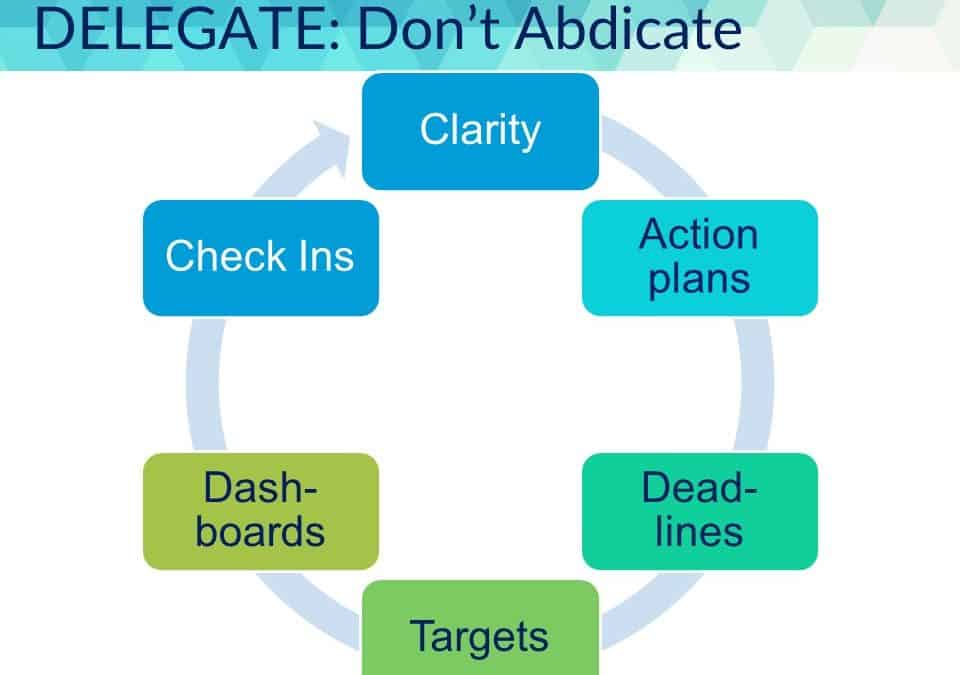How often do you ask someone to do something and don’t follow up?
Kings and Queens don’t usually abdicate their throne but managers often do when they delegate a task…
This “delegation” process might sound familiar:
- You casually and quickly mention to someone “I need you to do this ‘thing’ for me.”
- You “hope” the person understands what to do, has the knowledge to do it, will squeeze this new non-urgent task into their busy week, and will make a decision equal to the one you would make.
- And you get busy.. (that’s why you delegated in the first place, to take something OFF your plate, and have one less thing for you to remember.)
- Maybe you remember once to ask “how is that going” only to be met with either panic or remorse or a promise “I will get to that this week.”
- Then time goes by, you forget to follow up, you get frustrated when you remember it.. another ball is dropped, another great idea is withering away.
You say to yourself “but I delegated it– why didn’t it get done? Why can’t Joe get things done?”
The short answer is you did not DELEGATE, you ABDICATED responsibility.
Continuing my 6-part series on coaching for accountability (you can Read Step 1, Step 2, Step 3 and Step 4 here) or see all 6 steps on my 1 minute video slideshare.
Step 5 to Coach for Accountability and High Performance: Create a True Delegation Process- 6 Steps
- Clarity: Give crystal clear instructions, including expected actions, responsibility, outcomes, and expected completion date
- Action plan: Verify that the delegatee adds this task or project to their weekly action plan/ status report [break down a larger project into the next 2-3 action items]
- Deadlines: Give the entire project a deadline– then back up major “milestones” [outcomes, phases] with expected completion time to arrive at key dates
- Targets: Identify a key metric related to successful progress of this project (such as percent completion or meeting milestones scheduled dates or actual versus estimated targets)
- Dashboard: For projects over 3 months or with multiple milestones, setup a visual dashboard to track progress and update priorities
- Check ins: Weekly individual meetings [and weekly status reports] are the ideal way to keep any delegated items/ projects top of mind and on track, as well as find out what rockblocks are preventing progress, so you can provide additional clarity/ information/ knowledge/ resources are needed to keep moving
If you have used all 6 of these steps when you delegate and you are still not seeing progress, then I suspect you have an issue with the Job Fit of the person.
If you haven’t used all 6 steps, then the lack of progress is partly your responsibility.
Remember as a manager, accountability works both ways!
You need to setup your team members for success, and give them the training, coaching and resources they need to make progress and good decisions.
Next article I will share details on Step 6 “Consistency – Every Week.” [see all 6]





